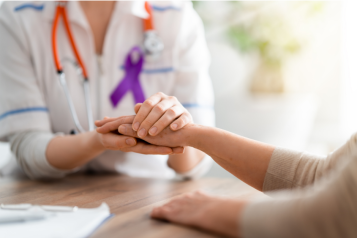"Uniting against Female Genital Mutilation" Event March 2014
Approximately 500,000 girls are victims of FGM across Europe, an estimated 65,000 of them in the UK, many in London.
The practice originates from Africa and is widespread in countries such as Egypt, Eritrea, Ethiopia, Djibouti, Ghana, Kenya, Sierra Leone, Somalia, Sudan, Uganda and Zanzibar. It is also carried out in some parts of the Middle East and Asia. The victims are commonly girls between infancy and 15.
It is done for cultural reasons - it is claimed FGM preserves a girl's virginity until marriage - and many women believe FGM is attractive to men and will help them find a husband. It is also carried out for religious reasons, although there is a strong dispute within Islam about whether the practice is sanctioned. There are terrible physical consequences: in the short-term, from haemorrhage, infection and shock, for example; and in the long-term from recurrent bladder infections, infertility and complications during childbirth. And the mental trauma can stay with women for life.
There are two main issues:
• The care – physical and psychological – of the survivors
• Prevention and the ending of the practice
The impression at the meeting was that NHS care of the victims is very good, at least in London. The big challenge is in preventing girls from falling victim in the first place.
There are three ways of doing this:
• By changing the culture within communities, although this is a slow process.
• By vigilance, particularly by teachers, school nurses, health visitors, midwives and social services, in identifying girls who are at risk and ensuring that they are protected. This calls for raising awareness and for education about the issues and how to respond. In the UK, families often take girls back to Africa during the school holidays to undergo the procedure, for example. Yet FGM has been a criminal offence in the UK since 1985 and it is now also an offence to take someone overseas for the purpose.
• By firm action by the police and social services against perpetrators.
The Department of Health is now recording all information relating to FGM, which it will use to inform healthcare for girls and also share with the police and social services. At the moment, there is very little official data. We heard a very moving account from an FGM survivor, Alimatu Dimonekene, a British woman originally from Sierra Leone. She explained that while it was very hard to speak out, it was essential for survivors to do so. Other speakers emphasised that everyone has a duty to raise concerns when they come across a victim or they suspect that a girl is at risk. No one should hold back for fear of being accused of racism or cultural insensitivity. It was pointed out that FGM is child abuse and a violation of a girl's human rights.
Some speakers, not least the Mayor, Boris Johnson, who came in at the end of the meeting, expressed concern that no one has ever been prosecuted over FGM, although the Crown Prosecution Service is expected to announce the first case in the near future. The feeling was that while success in ending FGM can never been measured by the number of prosecutions, just one case coming to court will send out a powerful message.
In the voluntary sector, the NSPCC has set up a dedicated FGM helpline (FGM helpline on 0800 028 3550 at fgmhelp@nspcc.org.uk), while the European anti-FGM organisation Desert Flower is about to open a London office. Other Sources of information include the FGM National Clinical Group (http://www.fgmnationalgroup.org/) and Orchid Project (http://orchidproject.org/)
The fact that the Mayor, along with the Deputy Mayor Victoria Borwick, health minister Jane Ellison, and the editor of the Evening Standard, were all present was significant. The main message to come out of the meeting was the fact that, after years of being swept under the carpet, FGM is now high up the political agenda and there is a new determination to tackle it. The debate now centres on the best ways to do this.
Jakhya Rahman and Sandra Hempel, March 2014


